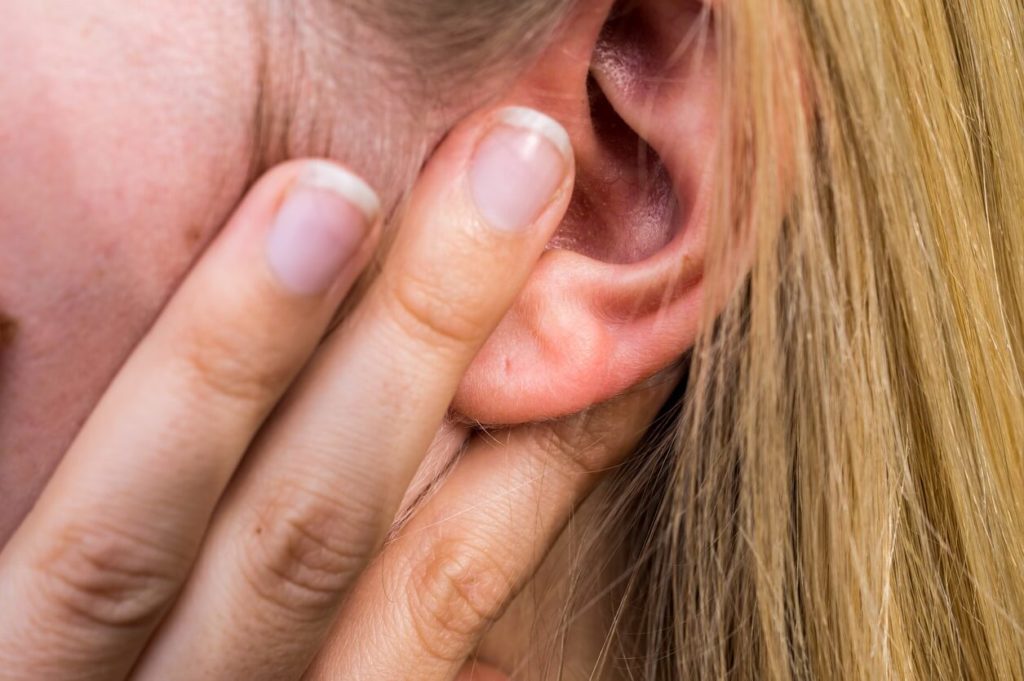ASMR: method of relaxation on sound?
Written by: Loris Vitry (holistic coach)
Validated by: Cathy Maillot (Osteopath)
Caution: If you have any medical questions or concerns, please speak to your doctor. Even if the articles on this site are based on scientific studies, they do not replace professional medical advice, diagnosis or treatment.

Can Man Finally Live Stress Free?
Without having to spend thousands of euros on litanic therapies?
For many people, this is indeed possible with the advent of ASMR, which they would call not just a discovery, but rather a revolution.
In recent weeks, videos of this new technique have been spreading on YouTube as well as social networks, like wildfire.
And they speak for themselves.
ASMR does many wonders for relaxation therapy.
In the blink of an eye, say goodbye to all your buried anxieties.
However, all this still seems fleeting to many people.
Because if the demonstrations carried out through these videos are clearly effective according to several scientists who have looked into the question, they come to intrigue more than one.
Could this be a scam?
What is the mystery behind ASMR?
Find out in this article, everything there is to know on the subject.
What is ASMR?
The acronym ASMR reads as follows: Autonomous Sensory Meridian Response, which stands for, Automatic Response of Sensory Meridians.
Also called “cerebral orgasm therapy”, ASMR is a technique which consists a priori in triggering a sensation through certain stimuli, which are noises (music, sounds of objects and animals, etc.) , images, even body contact.
It is a question of a set of basic reactions involuntarily triggered by techniques, in this case sound.
ASMR relaxation first appeared in the United States in 2010, and is increasingly popular in Europe.
How does it work?
The growl of a toad, the sounds of a clock, the murmurs of a character, the whisper of a soft voice in the ear, the clicking, the rubbing of a page, the sound of the rain falling on the windows, the signal of a radio …
So many rumors that ASMR uses in videos published on the internet.
Noises that instead of disturbing you, simply soothe you.
The purpose of these sounds produced is to activate the main nervous system, thus allowing your whole body to release all external and internal pressures.
This is to cover up a lull of the mind.
There are also other types of ASMR methods that stage objects.
The best known show human hands doing housework or cooking, their hands in contact with utensils, everything to prepare.
In some cases, these are simple “taping” movements.
In the end, all of these mechanisms, when properly perceived by the sensory meridians, induce, according to the testimonies of practitioners, pleasant tingling in the frontal lobe, like a brain massage.
This tingling sensation goes much further to such an extent that the subject reaches a non-sexual senso-additive state of orgasm.
However, ASMR techniques require some concentration and focus on sound.
SMR, effective for everyone?
The techniques used are far from being effective for everyone.
Indeed, the effectiveness of ASMR will depend from subject to subject, depending on the choice of stimuli.
It goes without saying that not everyone has the same triggers, which can dispel our physical or psychological stress and agitation.
It is therefore not enough to choose any published video to hope to see your body react automatically.
Since our meridians do not have the same sensitivities, let alone the same life experiences.
One may be sensitive to train noise, coming from a railway family, and the other receptive to the songs of cicadas, having become accustomed to living in the countryside.
Simon, a French YouTuber, says he finds it easier to relax and fall asleep to the sounds of falling rain on tiled roofs.
On the other hand, he hates the grunts of toads.
Whereas, Elvire, a nurse in Canada, who had the experience and became addicted to listening to whispering in ear.
As for some people, well-chosen music, or musical instruments, such as the piano or the guitar are more than enough.
In short, to discover his sensory predilections, each subject will have to explore little by little the neuroreceptor dimensions of his nervous system capable of plunging him into a state of deep relaxation.
The benefits of ASMR
According to Florian Boullot, founder of the “Paris ASMR” channel, ASMR causes a slowing of the heart rate more profound than a simple relationship.
Once the sounds are received, the cerebral cortex stimulates the secretion of serotonin, endorphins, oxytocin, or even dopamine, which has the function of regulating both sleep and the stability of the subconscious.
This is confirmed by recent research on the Plos One in June 2018.
According to these studies, ASMR causes in susceptible people a slower heartbeat, followed by an increase in skin conductance.
Hence the thoughtless response of the brain.
The exclusively sound cerebral caress, therefore, induces relaxation in the subject.
This is the reason why Dr Lemarquis (Neurologist in Toulon) recommends ASMR videos to his anxious, depressed, and insomniac patients.
In one of his Twitter posts, he said that this new method of relaxation would provide feelings of both security and comfort.
Other American and British studies have instead discovered through an MRI that ASMR activates certain areas of the nervous system.
Regardless, ASMR remains a mystery to many scientists today, whose sole purpose is not to discredit the effectiveness of ASMR, but to further define its process.
ASMR or improved sophrology?
A priori, one might be tempted to believe that the ASMR is just a sophisticated loan from sophrology.
But it didn’t take long to tell the difference.
In fact, sophrology constitutes a therapy during which the therapist makes his patient lie down, and propels him on an imaginary journey, with the aim of relieving the latter’s psychological torments.
Of course, the ultimate goal is to overcome the patient’s stress, the only difference being that sophrology only uses images, followed by the therapist’s voice during the session.
Sophrology therefore does not use specific noises, much less touches.
This is the interest aroused by ASMR, since it allows all people to better understand the primitive needs of their personalities.
Unlike relaxation through sophrology which aims to bring the subject to discover the best of himself.
In view of the multiple benefits that ASMR provides, there is no doubt that it is an undeniable asset in relieving daily stress.
Continue reading:
Psychological stress and infertility in men: what to do?

